
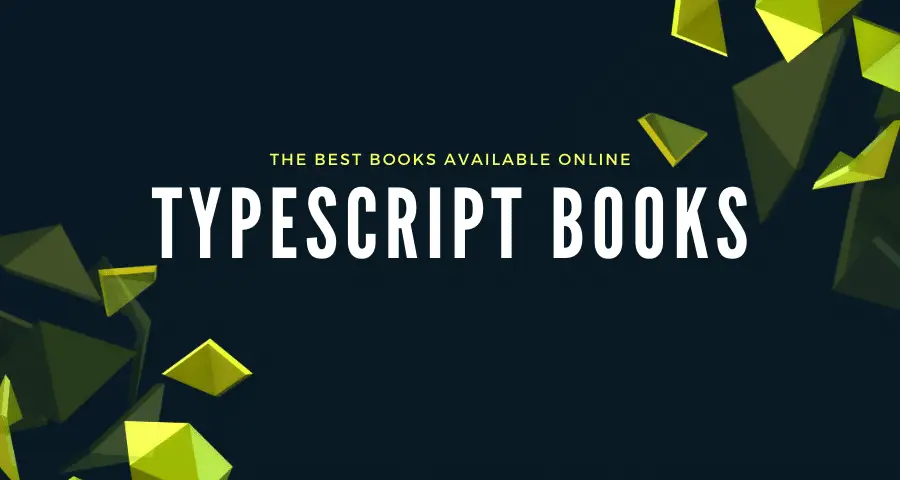
Top 10 TypeScript Books Available Online
TypeScript is a very useful and delicate language; it is used to build large applications. It is very similar to JavaScript and can be called cousins. TypeScript’s likeness to JavaScript is useful on the off chance that you, as of now, have involvement in JavaScript or other C-like dialects. The similarities additionally help the investigating procedure as the created JavaScript connects very closely to the first TypeScript code. To learn TypeScript, you need a proper set of TypeScript books to help you make the learning process easier and more interesting.
TypeScript is not a language that you can just read and learn. To get a proper hold of this language, you need to practice it hard so that there are no lackings in any part because a single lacking can cause huge problems later on.
Best TypeScript Books
Like other programming languages, TypeScript also needs your proper attention and care. By that, it means you have to give in a lot of your valuable time to learning and mastering this language to get the most out of it.
Once you can understand how everything works, you will never find anything more interesting than working with this. The following has a list of the top ten books that you will love to read as they are easy to read and comprehend and extremely informational and useful.
1. Essential TypeScript From Beginner to Pro
If you are a novice, then this Typescript book is just perfect for you. It has five parts starting with the most basics. If you want to learn TypeScript from scratch, then this book is an excellent choice. It will first start with a very rudimentary typescript application, how you can use the typescript compiler and test and debug typescript.
The second part will allow you to work with functions, arrays, tuples, classes, and interfaces. Here you will also be taught to use the generic types. Finally, the last and the most interesting part will teach you to create web applications. You can also create data models and angular apps after finishing this book.
Table of Contents
Part I: Getting Started with TypeScript
- Chapter 1: Your First TypeScript Application
- Chapter 2: Understanding TypeScript
- Chapter 3: JavaScript Primer, Part 1
- Chapter 4: JavaScript Primer, Part 2
- Chapter 5: Using the TypeScript Compiler
- Chapter 6: Testing and Debugging TypeScript
Part II: Working with TypeScript
- Chapter 7: Understanding Static Types
- Chapter 8: Using Functions
- Chapter 9: Using Arrays, Tuples, and Enums
- Chapter 10: Working with Objects
- Chapter 11: Working with Classes and Interfaces
- Chapter 12: Using Generic Types
- Chapter 13: Advanced Generic Types
- Chapter 14: Working with JavaScript
Part III: Creating Web Applications
- Chapter 15: Creating a Stand-Alone Web App, Part 1
- Chapter 16: Creating a Stand-Alone Web App, Part 2
- Chapter 17: Creating an Angular App, Part 1
- Chapter 18: Creating an Angular App, Part 2
- Chapter 19: Creating a React App
- Chapter 20: Creating a React App, Part 2
- Chapter 21: Creating a Vue.js App, Part 1
- Chapter 22: Creating a Vue.js App, Part 2
2. TypeScript High Performance
The Typescript book is a great book for learning Typescript. It gives clear models identified with effective programming utilizing TypeScript, just as overseeing assets for responsive frameworks and client interfaces.
Inclusively, the book is written so that the peruser can incline up rapidly to further developed language builds. Yet, they can likewise appreciate the method of reasoning behind different decisions for the given use case.
The reasonable models coincided with an empirical investigation of the exhibition for each given plan, and usage decisions are very reviving and dissipated throughout the book. Indeed, even amateur perusers can get the essential bits of knowledge and build up thinking for composing effective and responsive programming frameworks.
Table of Contents
- Efficient Implementation of Basic Data Structures and Algorithms
- Variable Declarations, Namespaces, and Modules
- Efficient Usage of Advanced Language Constructs
- Asynchronous Programming and Responsive UI
- Writing Quality Code
- Efficient Resource Loading – Critical Rendering Path
- Profile Deployed JS with Developer Tools and Fiddler
- Build and Deployment Strategies for Large-Scale Projects
3. TypeScript Essentials
This Typescript book is a snappy and helpful manual for learning the TypeScript language. The language features that TypeScript gives on JavaScript are shrouded completely in this book with hands-on models. TypeScript is a genuinely new advancement language that can facilitate the torment of ordinary JavaScript improvement.
Beginning from downloading the compiler, covering language includes, and executing a powerful application, this book will leave you prepared to make new, enormous scope JavaScript-based applications. This book is planned to present the TypeScript language and its highlights to anybody hoping to create rich web applications.
Regardless of whether you are new to web advancement or are an accomplished designer with solid JavaScript aptitudes, this book will make you compose code rapidly. An essential comprehension of JavaScript and its language highlights is fundamental for this book.
Table of Contents
- The advantages of TypeScript
- Setting up the IDE
- Hello World
- Command-line compilation
- Integrating Visual Studio
- Creating a new project
- Build options
- Types
- Functions
- Interfaces
- Classes
- Definitions
- Interfaces
- Static and instance members
- Properties
- Enums
- Modules
- Internal modules
- Generic objects
- Generation of ECMAScript
- ECMAScript version
- Code manipulation
- Controlling compiler output
- JavaScript output
- Source maps
- Advanced options
- The basics
- SOLID – object-oriented design
- Understanding inheritance
- Encapsulation
- Abstraction
- Polymorphism
- Method overloading
- Operator overloading
- Method overrides
- References
- Setting up the project The shapes
- Basic shapes
- Drawing shapes
- Making the application interactive
- The engine
- Mouse events
- User options
- Declaration files Third-party library integration
- Installing NuGet packages
- Integrating with jQuery
- Integrating with Knockout
- Using RequireJS
- Converting to AMD modules Binding the user controls
- Reusable controls
- Creating a ViewModel
- Generating a single output file
- Styling the application
- Debugging
- Source maps
- Debuggers
- Test-driven development
- Unit testing
- Adding tests
- Summary
4. Mastering TypeScript
This book is a perfect guide for experienced TypeScript designers and simply starting their TypeScript venture. With an emphasis on Test Driven Advancement, meticulous data on joining with numerous mainstream JavaScript libraries, and a top to bottom gander at TypeScript’s highlights, this Typescript book will assist you with your investigation of the subsequent stage in JavaScript improvement.
Regardless of whether you are a JavaScript engineer needing to learn TypeScript, or an experienced TypeScript engineer needing to take your aptitudes to the following level, this book is for you.
From fundamental to cutting-edge language development, Test Driven Advancement, and object-oriented methods, you will figure out how to get the most out of the TypeScript language and compiler. This book will tell you the best way to fuse solid composing, object-direction, and configuration best practices into your JavaScript applications.
Table of Contents
- Chapter 1: TypeScript – Tools and Framework Options
- Chapter 2: Types, Variables, and Function Techniques
- Chapter 3: Interfaces, Classes, and Generics
- Chapter 4: Writing and Using Declaration Files
- Chapter 5: Third-Party Libraries
- Chapter 6: Test-Driven Development
- Chapter 7: Modularization
- Chapter 8: Object-oriented Programming with TypeScript
- Chapter 9: Let’s Get Our Hands Dirty
5. Pro TypeScript
This book is for developers and draftsmen dealing with enormous scope JavaScript applications, either running in a program, on a server, or on a working framework that uncovers a JavaScript API. Past involvement in JavaScript or another C-like language is valuable when perusing this book, just as a working knowledge in object-oriented programming and configuration designs help.
This Typescript book portrays the language features, Typescript, and object orientation in Typescript in the first few chapters. After that, you will be taught how to run Typescript in a browser, server and how you can handle exceptions with memory management information.
Table of Contents
- Chapter 1: TypeScript Language Features
- Chapter 2: The Type System
- Chapter 3: Object Orientation in TypeScript
- Chapter 4: Understanding the Runtime
- Chapter 5: Running TypeScript in a Browser
- Chapter 6: Running TypeScript on a Server
- Chapter 7: Exceptions, Memory, and Performance
- Chapter 8: Using JavaScript Libraries
- Chapter 9: Automated Testing
6. Learning TypeScript
On the off chance that you are a halfway-level JavaScript designer planning to learn TypeScript to manufacture excellent web applications, at that point, this book is for you. No earlier information on TypeScript is required; however, an essential comprehension of jQuery is much expected.
The book acquaints TypeScript from fundamental with cutting edge language constructs and object-oriented systems for benefiting from the TypeScript language and compiler. This book will tell you the best way to join solid composing, object-situated standards, structure designs, and the prescribed procedures for dealing with the multifaceted nature of enormous scope JavaScript applications easily.
Table of Contents
- Introducing TypeScript
- Automating Your Development Workflow
- Working with Functions
- Object-Oriented Programming with TypeScript
- Runtime
- Application Performance
- Application Testing
- Decorators
- Application Architecture
- Putting Everything Together
7. TypeScript Deep Dive
TypeScript Deep Dive is a book for both novices as well as experts. It dives deep into the language, starting from the absolute basics. Are you scared that you have never programmed a single line of code in your life before? Well, no worries, this book will literally hold your hand like a mother and guide you along your Typescript journey.
Not only will you be able to learn TypeScript from this book, but also JavaScript. This TypeScript book will be your ultimate guide if you are new to this field. It will first start with JavaScript and then move into teaching you to design your own projects.
Table of Contents
- JavaScript
- Future JavaScript Now
- Project
- Node.js QuickStart
- Browser QuickStart
- TypeScript’s Type System
- JSX
- Testing
- TIPs
- Style Guide
- TypeScript Compiler Internals
8. TypeScript – Notes for Professionals
This book is an excellent resource for information on TypeScript. This book is more like your daily usage notes. Starting with the very basics, it will teach you what you need to know as a professional.
At first, you will be taught how to get along with this language, its core types, functions, classes, interfaces, etc. Then you will also be taught TypeScript with angular JS, debugging, and testing. So without any hesitation, just close your eyes and trust not his book, and you will succeed.
Table of Contents
- Chapter 1: Getting started with TypeScript
- Chapter 2: Why and when to use TypeScript
- Chapter 3: TypeScript Core Types
- Chapter 4: Arrays
- Chapter 5: Enums
- Chapter 6: Functions
- Chapter 7: Classes
- Chapter 8: Class Decorator
- Chapter 9: Interfaces
- Chapter 10: Generics
- Chapter 11: Strict null checks
- Chapter 12: User-defined Type Guards
- Chapter 13: TypeScript basic examples
- Chapter 14: Importing external libraries
- Chapter 15: Modules – exporting and importing
- Chapter 16: Publish TypeScript definition files
- Chapter 17: Using TypeScript with web pack
- Chapter 18: Mixins
- Chapter 19: How to use a JavaScript library without a type definition file
- Chapter 20: TypeScript installing typescript and running the typescript compiler tsc
- Chapter 21: Configure typescript project to compile all files in typescript
- Chapter 22: Integrating with Build Tools
- Chapter 23: Using TypeScript with RequireJS
- Chapter 24: TypeScript with AngularJS
- Chapter 25: TypeScript with SystemJS
- Chapter 26: Using TypeScript with React (JS & native)
- Chapter 27: TSLint – assuring code quality and consistency
- Chapter 28: tsconfig.json
- Chapter 29: Debugging
- Chapter 30: Unit Testing
9. Angular for Material Design
This book clarifies building a web UI with Angular, an incredible structure for web applications. The book depicts utilizing the Angular Material library with Material Design segments. This library gives various, instant, simple-to-utilize segments that function admirably with an Angular application.
This book utilizes Angular with TypeScript, which is a JavaScript superset. TypeScript empowers you to utilize information types, and the program builds, such as classes, interfaces, conventional layouts, etc.
This book will guide you through constructing applications that exploit different Angular highlights, including information authoritative, parts, and administrations. It depicts building a single-page application and interfacing with remote administrations over HTTP.
This book is for novice to medium ranged experts. It clarifies Material Design, a language by Google, develops, and teaches you building web applications utilizing Angular and TypeScript.
Table of Contents
- Chapter 1: Introduction
- Chapter 2: Getting Started
- Chapter 3: Modules
- Chapter 4: Angular: Components
- Chapter 5: Angular: Data Binding and Change Detection
- Chapter 6: Angular: Directives
- Chapter 7: Angular: Services and Dependency Injection
- Chapter 8: Material Design: User Input
- Chapter 9: Angular: Building Forms
- Chapter 10: Material Design: Additional Form Fields
- Chapter 11: Angular: Routing
- Chapter 12: Material Design: Navigation
- Chapter 13: Material Design: Layout
- Chapter 14: Material Design: Using Lists
- Chapter 15: Material Design: Alerts and Dialogs
- Chapter 16: Angular: HTTP Client
10. TypeScript Design Patterns
Now, if you are a TypeScript designer, this book is for none other but you. No information on configuration designs is required to peruse this book, so there is no need to be scared. Even though this book does not require the peruser to know about configuration designs, it is not a book that shows fundamental TypeScript sentence structure.
If you are not yet acquainted with TypeScript, you might want to go through a basic beginner TypeScript book to learn TypeScript properly before perusing Chapter 2, The Challenge of Expanding Complexity.
Table of Contents
- Chapter 1: Tools and Frameworks
- Chapter 2: The Challenge of Increasing Complexity
- Chapter 3: Creational Design Patterns
- Chapter 4: Structural Design Patterns
- Chapter 5: Behavioral Design Patterns
- Chapter 6: Behavioral Design Patterns: Continuous
- Chapter 7: Patterns and Architectures in JavaScript and TypeScript
- Chapter 8: SOLID Principles
- Chapter 9: The Road to Enterprise Application
Finally
TypeScript is an excellent language to get started with. Not only can it be applied to a lot of places, but it is also fun to work with. It has a wide range of scope, and its similarities with JavaScript have made it even more useful. Typescript’s primary advantage is that it offers the capacity to add static sorts to your Javascript code. Javascript is a powerfully composed language, one of its best or one of its most exceedingly terrible highlights, contingent upon who you inquire.
Actually, you do not have to learn TypeScript to be a decent designer; many people do fine and dandy without it. However, working with TypeScript certainly has its advantages. Due to the static typing, code written in TypeScript is foreseeable and is commonly simpler to troubleshoot.
We hope you liked this article and found it useful. If you did, please do not hesitate to share it with your friends and family and help them with their learning journey. Best of luck!












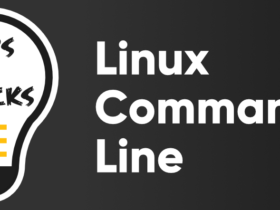









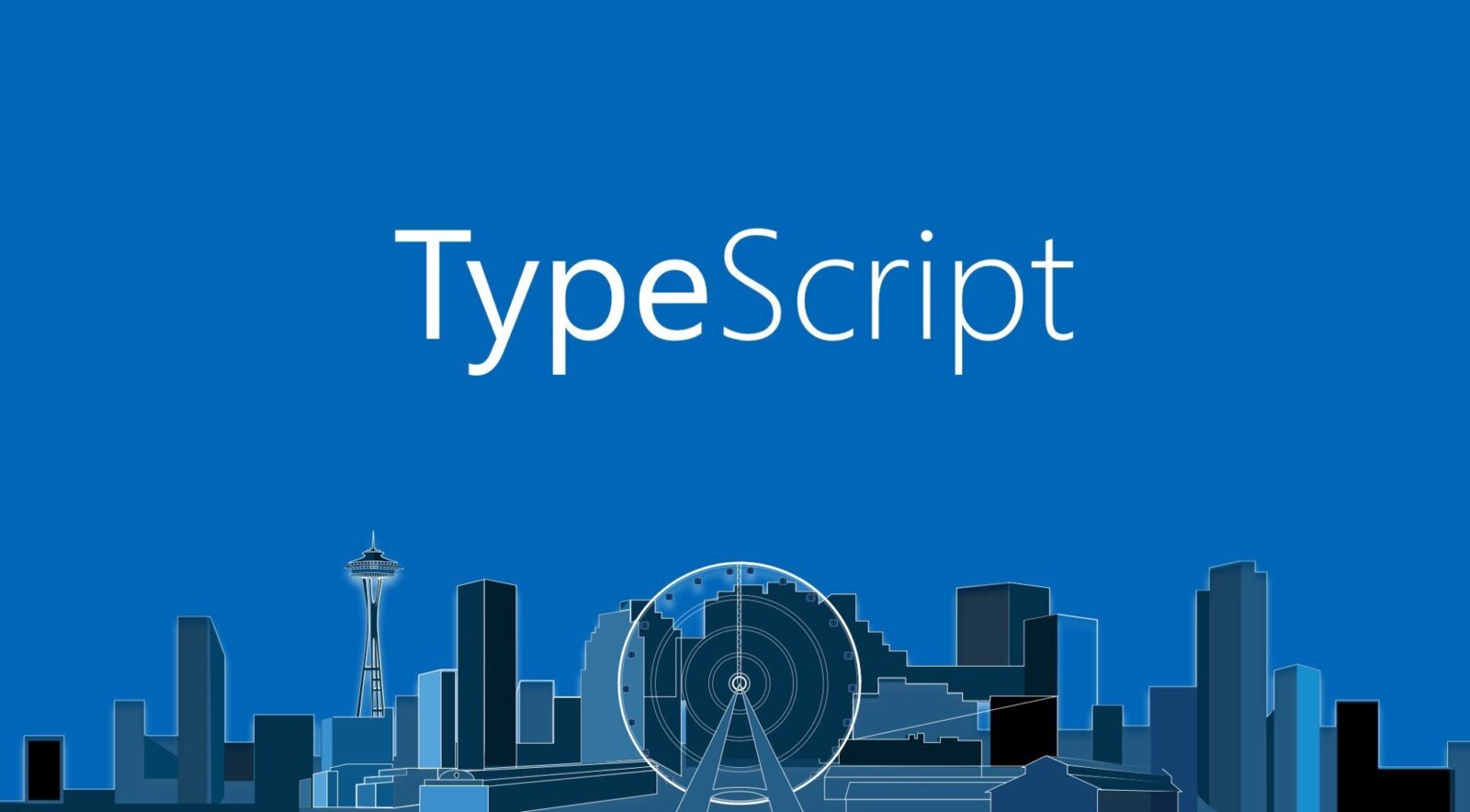


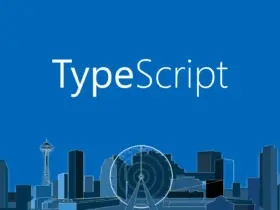
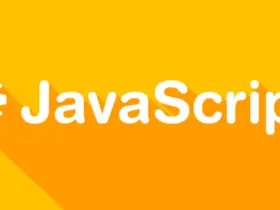
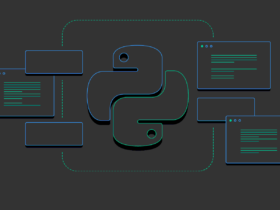

Leave a Reply